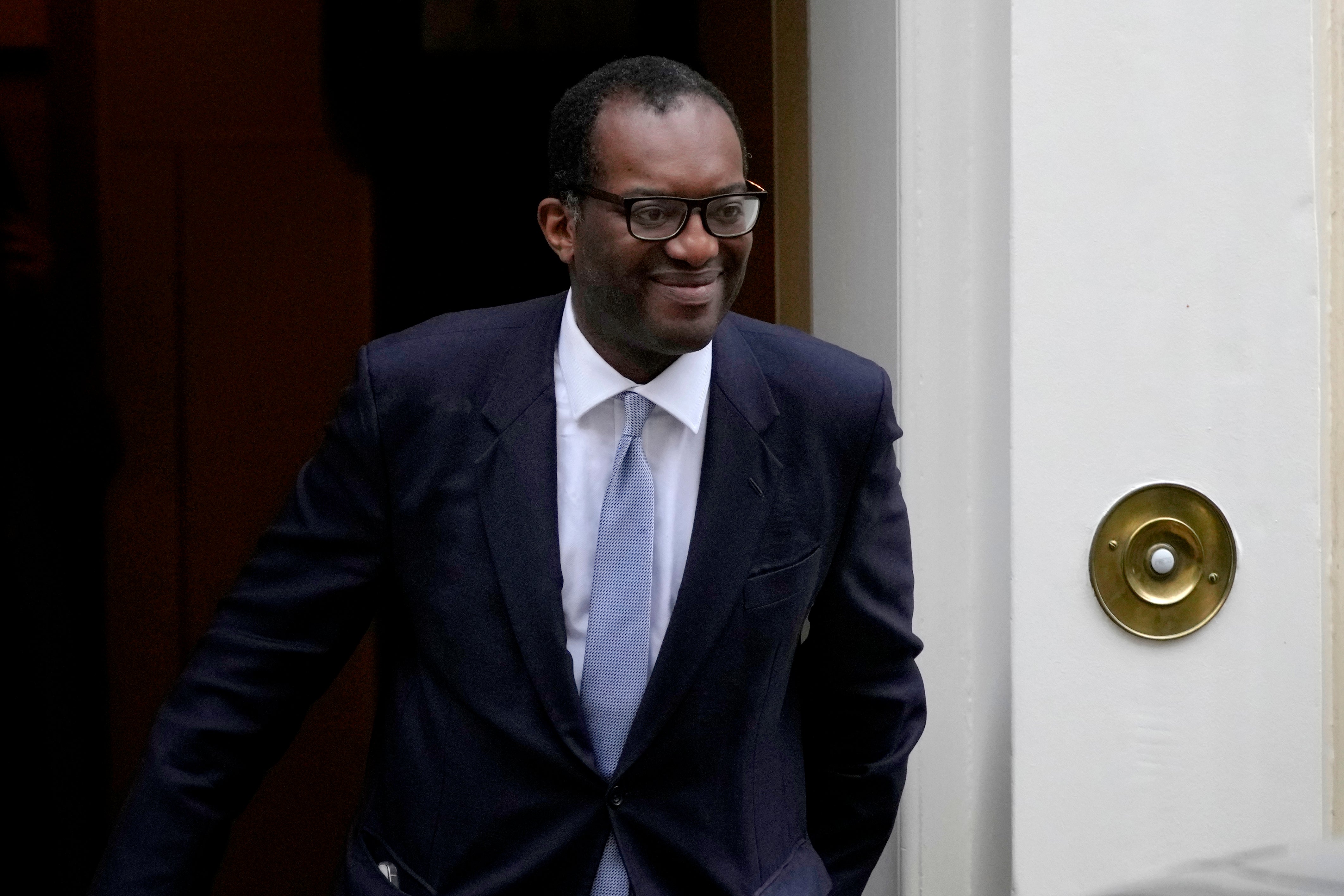Kwasi Kwarteng’s curious and long-standing interest in Libyan affairs
The now-sacked chancellor has been a keen supporter of militia backed by Wagner fighters

Down the road in Bakhmut, Russian forces are on the attack and may break through to threaten other areas of the Donbas.
It is the one battleground in Ukraine where the Kremlin is doing well at present, and mercenaries from the Wagner Group are playing a leading part in the operation.
The notorious paramilitary force, seen by many as a de facto private army for Vladimir Putin, has played a role in numerous conflicts around the world including recently the Sahel where they recently replaced French troops in Mali. as well as Syria and Libya.
Which brings us to Kwasi Kwarteng, the recently-sacked chancellor, who is reported to have met controversial Libyan militia commander Fathi Bashagha earlier this year on a trip organised by Mark Fullbrook, who later became Downing Street chief of staff.
Mr Bashagha was brought to the UK under the proviso that he is Libya’s ‘legitimate prime minister’ as part of a bid by Mr Fullbrook to change the British government stance of supporting UN-backed government of Abdul Hamid al-Dbeibah, according to a Sunday Times investigation.
During his visit, Mr Bashagha is also said to have met Nadhim Zawahi, the current Chancellor of the Duchy of Lancaster, while Mr Kwarteng hosted the meeting in his office.
The trio were pictured together and Mr Zahawi confirmed the meeting, but did not say if it had been declared through formal channels.
Mr Bashagha is an ally of Field Marshal Khalifa Haftar, who was backed by Mr Putin in Libya’s civil war and was helped by Wagner fighters.
His recent trip to the UK was not officially approved by No 10 or the Foreign Office.
Mr Kwarteng, who was sacrificed by Liz Truss on Friday following the disastrous mini-budget which crashed the UK economy, has long had an interest in Libyan affairs.
Five years ago, he met Field Marshal Haftar during a visit organised by the Conservative Middle East Council (CMEC) a right of centre think tank funded by businesses with Middle Eastern links.
I took part in a Spectator podcast with Mr Kwarteng after his Libya visit and after I had just returned from reporting in the country.
Haftar, he wanted to stress, was a major force for “political stability”. I agreed that the military strongman needed to be engaged, but suggested that the internationally-recognised leader in Tripoli, Fayez al-Sarraj, should be supported until a longer-term solution was found.
Mr Kwarteng dismissed this, insisting that Sarraj was “inherently weak” and should not be “propped up by the West”.
He wrote a piece in the Evening Standard in January 2017 in which he referred to Haftar as a “potential saviour” and said there was hope then-president Donald Trump would “seize the initiative and come up with a plan to back Field Marshal Haftar.”
He wrote: “Such a move would not strictly conform to the ideals of ‘democratic state building’ but it might provide a stable government to give Libya some control of its borders.”
Mr Kwarteng also spoke up for Field Marshal Haftar in a Commons debate in 2016, saying: “There is no doubt he is a controversial figure, but it is difficult to envisage a stable Libya without his active participation. He simply has a lot of muscle and many forces....He has to come round the table if we are to reach a satisfactory solution.”
Mr Kwarteng was not the only MP pressing Haftar’s case. Fellow Tory MP Daniel Kawczynski, added “I am pleased my honourable friend is spending time talking about Haftar. We should support Haftar to bring peace and stability to the country.”
Mr Kawczynski also takes an interest in Middle Eastern affairs. In December 2021, he was reported to the parliamentary commissioner for standards, after allegedly hosting a Saudi businessman in parliament while hoping to secure a lucrative second job. Mr Kawczynski insisted no rules were broken.
At the end of our podcast, Mr Kwarteng said we will be debating Haftar and Libya in five years’ time; I ventured that Libya would probably be largely forgotten by the international community and the media by then.
Mr Kwarteng’s political career subsequently rose to great heights, culminating in his brief tenure as chancellor. Field Marshal Haftar, however, continues to be a powerful warlord in Libya, and Wagner’s mercenaries continue to engage in death and destruction in another war.
In July, one month after Mr Kwarteng and Mr Zahawi met Mr Bashagha in London, a judge in the US state of Virginia ordered Haftar, a dual American and Libyan citizen, to pay Libyan plaintiffs who allege he ordered the torture and extrajudicial killings of family members and who are seeking $50 million in compensation.






Join our commenting forum
Join thought-provoking conversations, follow other Independent readers and see their replies
Comments